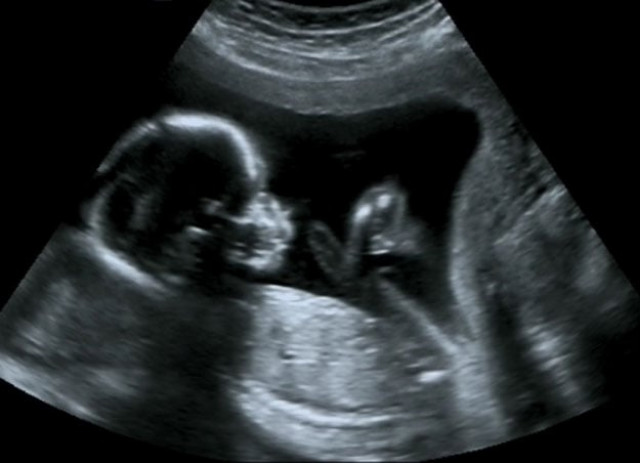Men also affected by biological clock, researchers find
Women aged under 30 with a male partner aged 40 to 42 saw chance of live birth after IVF fall to 46%

The age of the male partner affects the chances of live birth, study suggests
STOCK IMAGE
A new study reveals that a couple’s chances of having a baby fall with the man’s age, to the point that it can have a substantial impact on their ability to start a family.
Laura Dodge, who led the research at the Beth Israel Deaconess Medical Center and Harvard Medical School in Boston, said that couples need to place equal focus on both men and women while making decisions relating to family planning. “When making this decision, they should also be considering the man’s age,” she said.
“The impact of age seems to focus almost exclusively on the female partner’s biological clock,” Dodge added.
Let’s make ‘family planning’ part of Sindh’s abortion argument
To investigate the impact of a man’s age on a couple’s chances of having a baby, Dodge and her colleagues studied records of nearly 19,000 IVF treatment cycles in the Boston area between 2000 and 2014. The women sample were divided into four age bands; under 30, 30-35 year-olds, 35-40 year-olds, and 40-42 year-olds. The men were also selected on the same age brackets, but had an extra band of over 42-year-old as well. Some of the couples had received up to six cycles of IVF.
Dodge then observed how age affected the couples’ chances of having a live birth. As already recorded, women in the 4-42 age bracket had the lowest birth rates, and for these women the male partner’s age had no significant impact.
However, for younger women, the man’s age played a crucial role. Women aged under 30, with an older male partner had a 73 per cent chance of a live birth after IVF. But the success rates fell to 46 per cent when the man was aged between 40 and 42. Whether they’d like to hear or not, the biological clock ticks loudly for men too.
For men who are reluctant to start a family, it is an age-old defence: there is no need to rush into fatherhood, as Des O’Connor, Luciano Pavarotti and countless rock stars have proved when they had children well after they qualified for their bus passes.
The study, to be reported at the European Society of Human Reproduction and Embryology meeting in Geneva on Tuesday, found that male age had no real impact on birth rate when his partner was the same age. But some women did benefit from being with younger men. When women aged 35-40 partnered with men aged 30-35, their chances of having a baby stood at 54 per cent, a figure that rose to 70 per cent when the man was under 30. On average, women aged 30 to 35 who had older male partners had live birth rates of 64 per cent compared with 70 per cent if the man was in the same age bracket.
“Declining sperm quality certainly plays some role, but our work shows that this is not the whole picture,” Dodge said. “We found similar results among couples with no documented male infertility, so something else is happening.” Even though, men produce fresh sperm every day, the cells the sperm are produced from carry their own mutations, and the older the man gets, the more DNA damage the sperm entails.
Shariat court’s decision: Is the battle only half won for solutions to infertility?
“The value of this is not only in counselling couples,” said Nick Macklon, professor of obstetrics and gynecology at the University of Southampton, who was not involved in the study. “It may help women to encourage their male partners to get a move on. We know from a number of studies that one of the reasons why women are having babies later is because men are sometimes slow to support the idea."
The reason for this has yet to be discovered by researchers. Male fertility decrease is a notion that needs to be studied in more detail. Women are born with their lifetime’s storage of eggs which accumulate mutations over time. As a result, the overwhelming cause of decrease in fertility in older women is a rise in abnormal chromosomes in their eggs. In men, the ageing process affects sperm quality, making it harder to achieve a pregnancy and increasing the risk of miscarriage.
“This is something we’ve suspected is the case, that male age probably has an effect on the success rate of fertility treatment,” said Raj Mathur, clinical lead for reproductive medicine at Manchester Fertility. “It is important and perhaps clinicians should start, when they are counselling couples, to take into account the age of the man as well.”
This article originally appeared on The Guardian.



















COMMENTS
Comments are moderated and generally will be posted if they are on-topic and not abusive.
For more information, please see our Comments FAQ